MM254: Organisational Behaviour - Bureaucracy: Pros and Cons
VerifiedAdded on 2021/05/29
|10
|657
|299
Report
AI Summary
This report analyzes the advantages and disadvantages of bureaucracy, focusing on its impact on organizational behavior. It begins by outlining the benefits, such as structured systems, clear hierarchies, and specialized roles, which contribute to efficiency and predictability. However, it also addresses the drawbacks, including potential for impersonal interactions, slow problem-solving, and resistance to change, leading to inefficiency and 'iron cage' effect. The report explores the implications of bureaucracy on employee motivation, organizational culture, and the limits of power and authority, drawing on Weber's concept of rationalization and its impact on shared values. It concludes by considering the inevitability of bureaucracy in modern organizations. This analysis provides a comprehensive overview of the benefits and drawbacks of bureaucratic structures within the context of organizational behavior, offering valuable insights for students of management and leadership.
1 out of 10

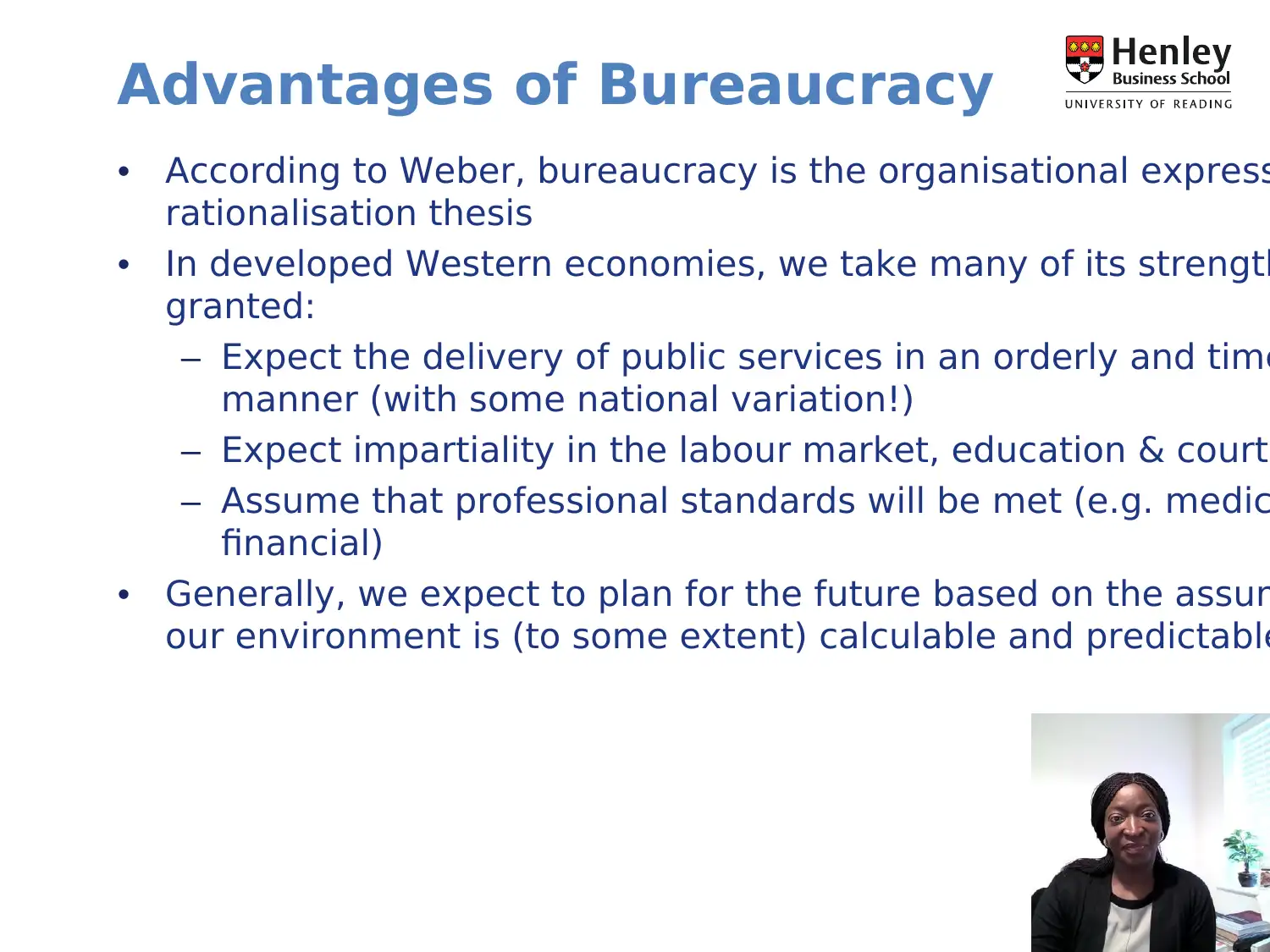
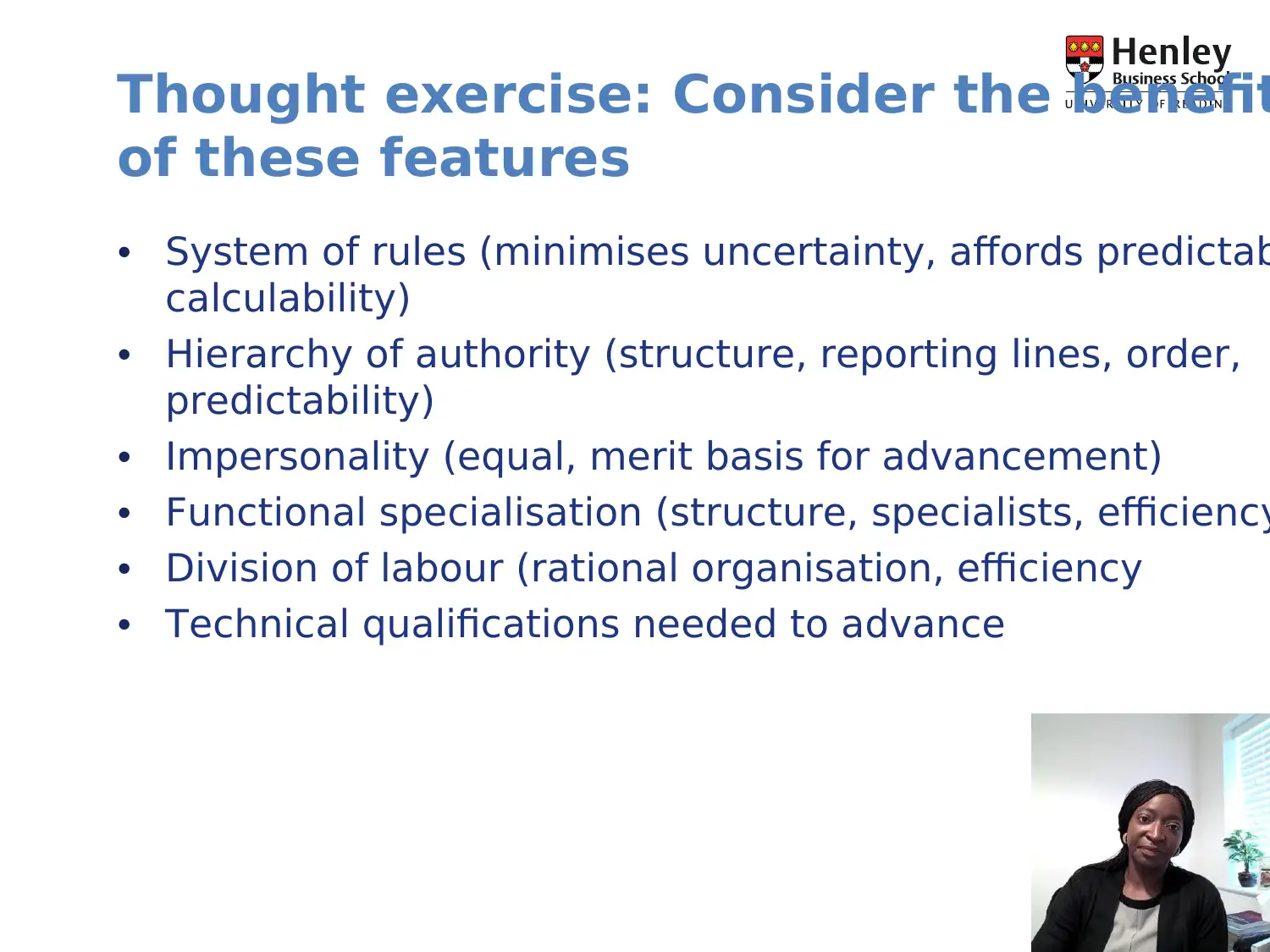

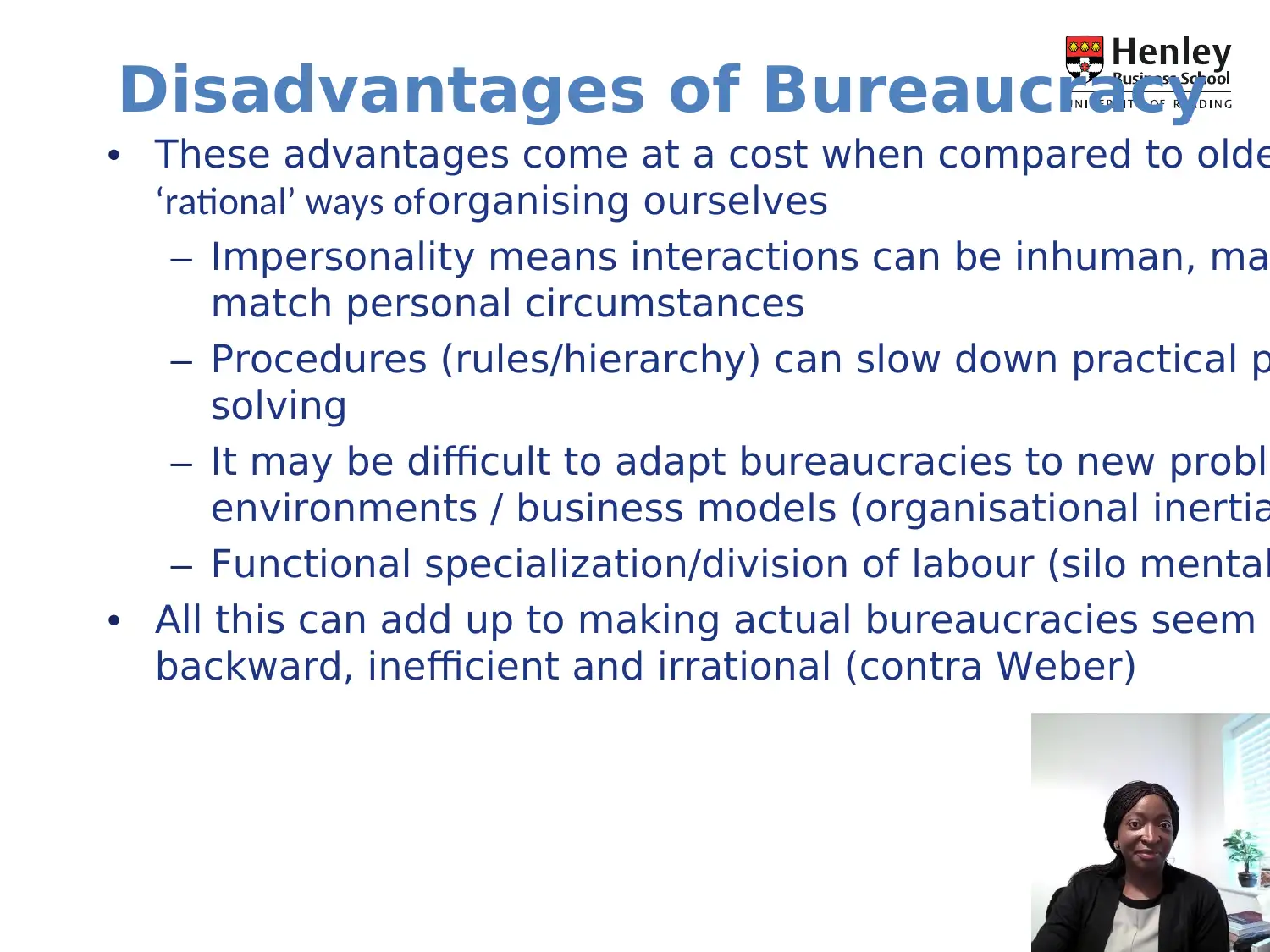
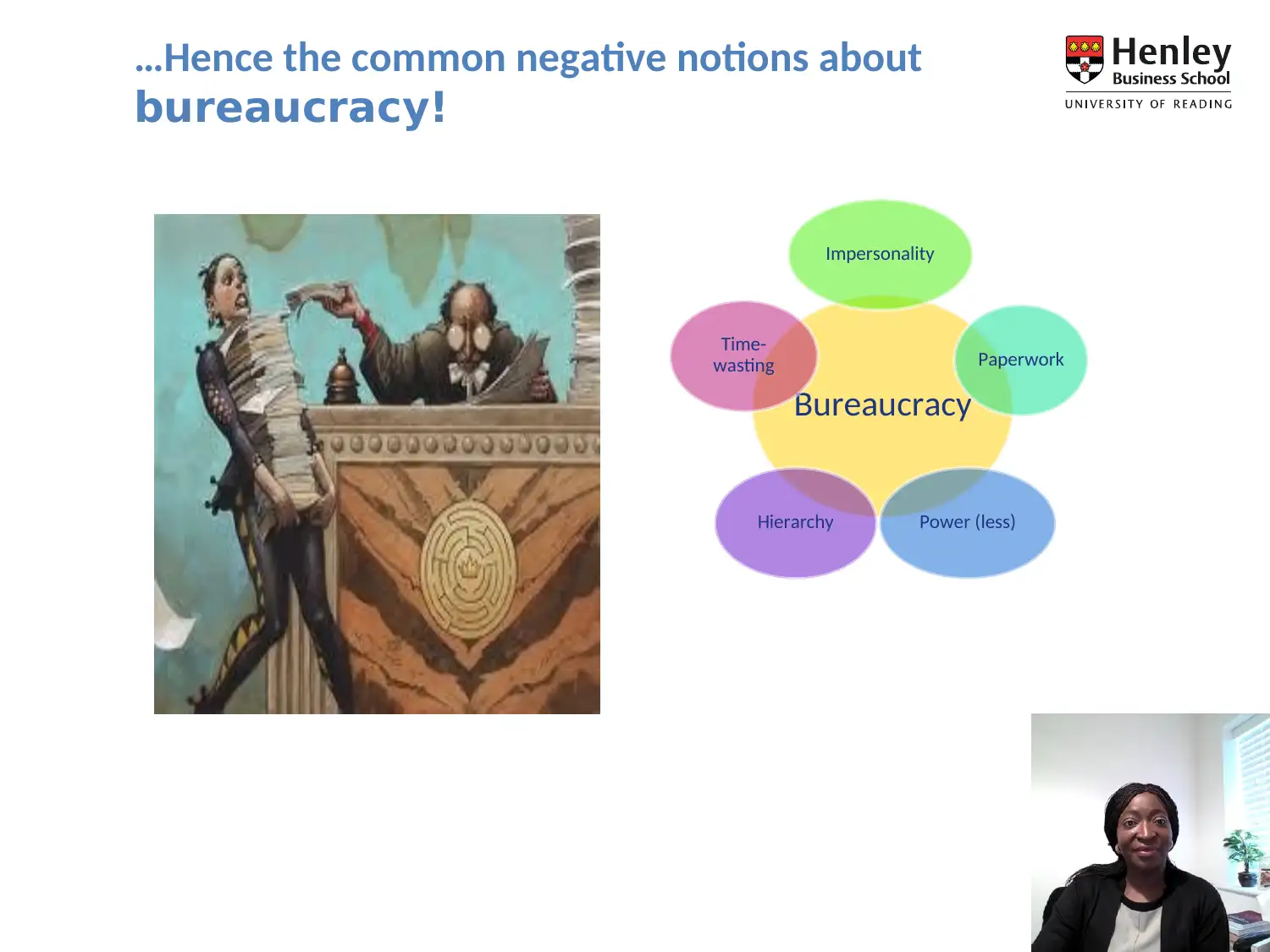
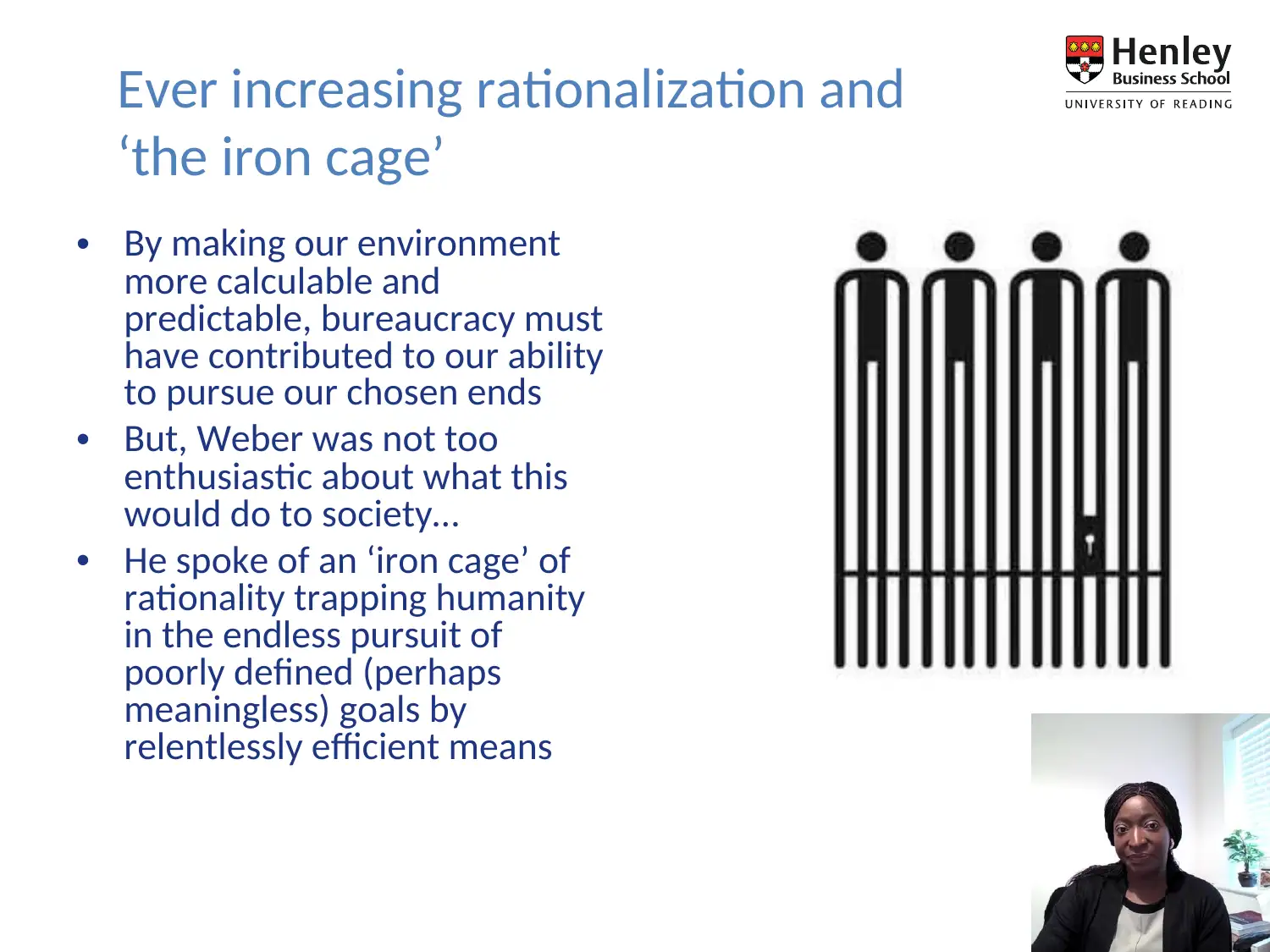
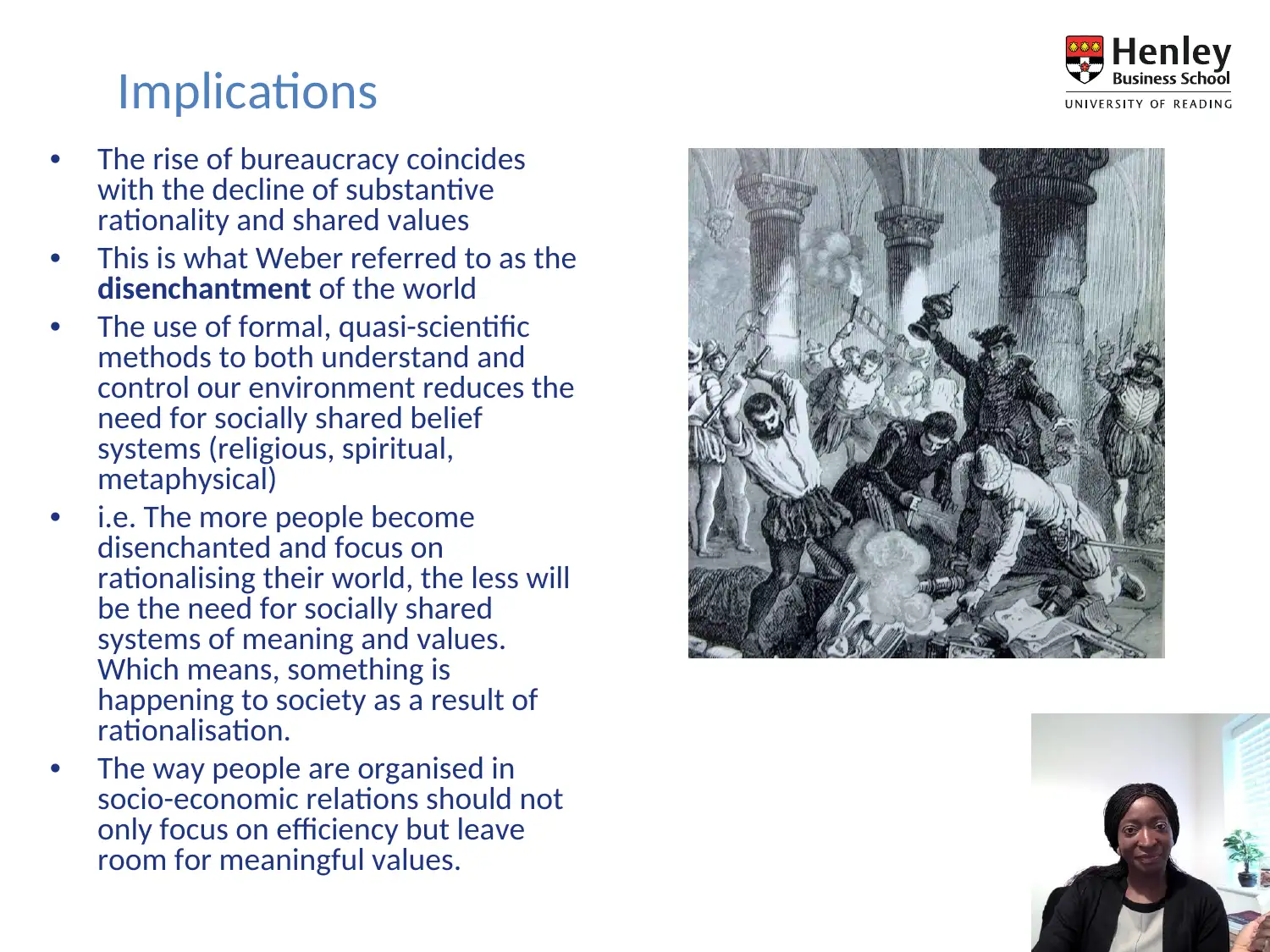
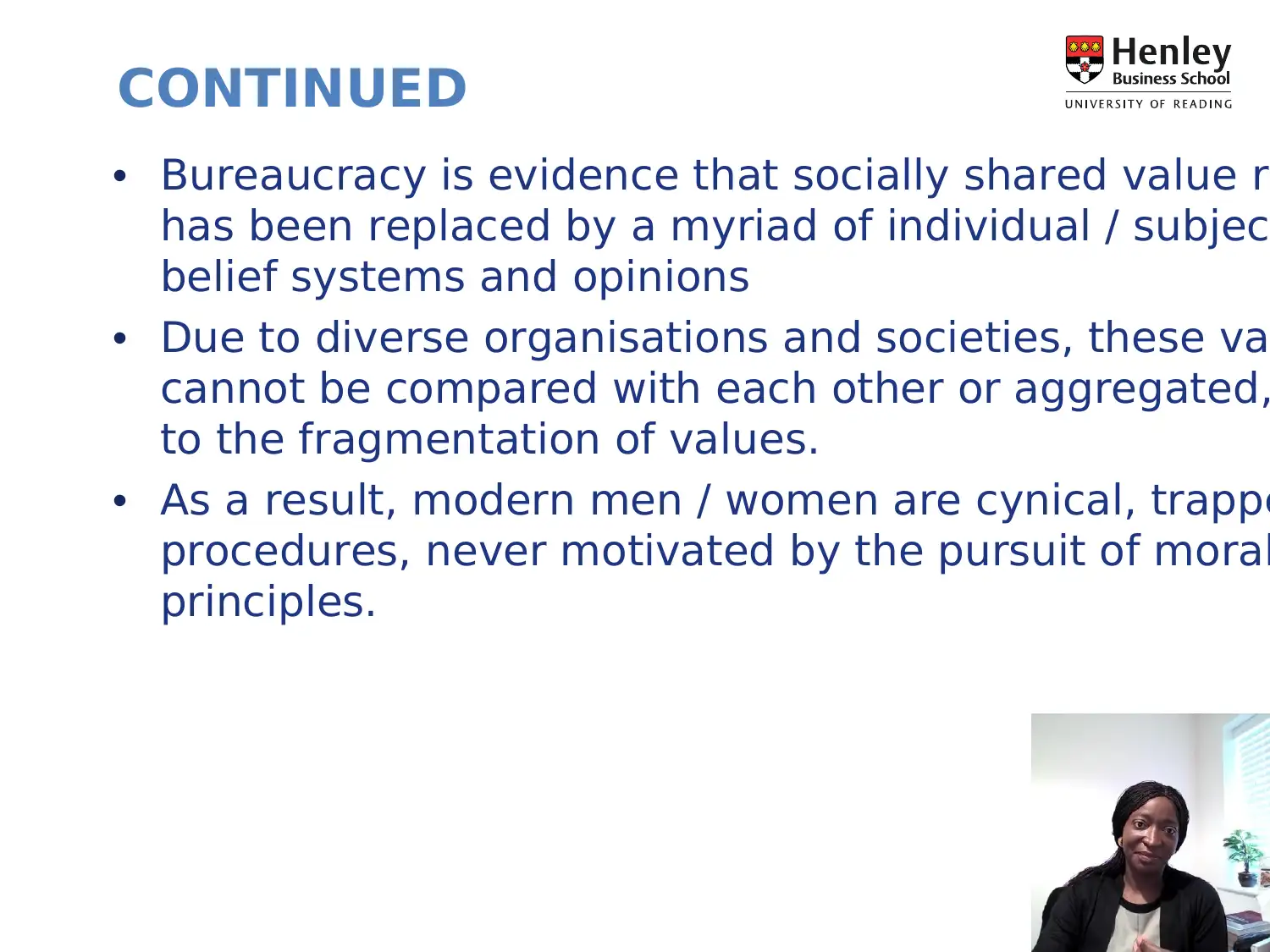
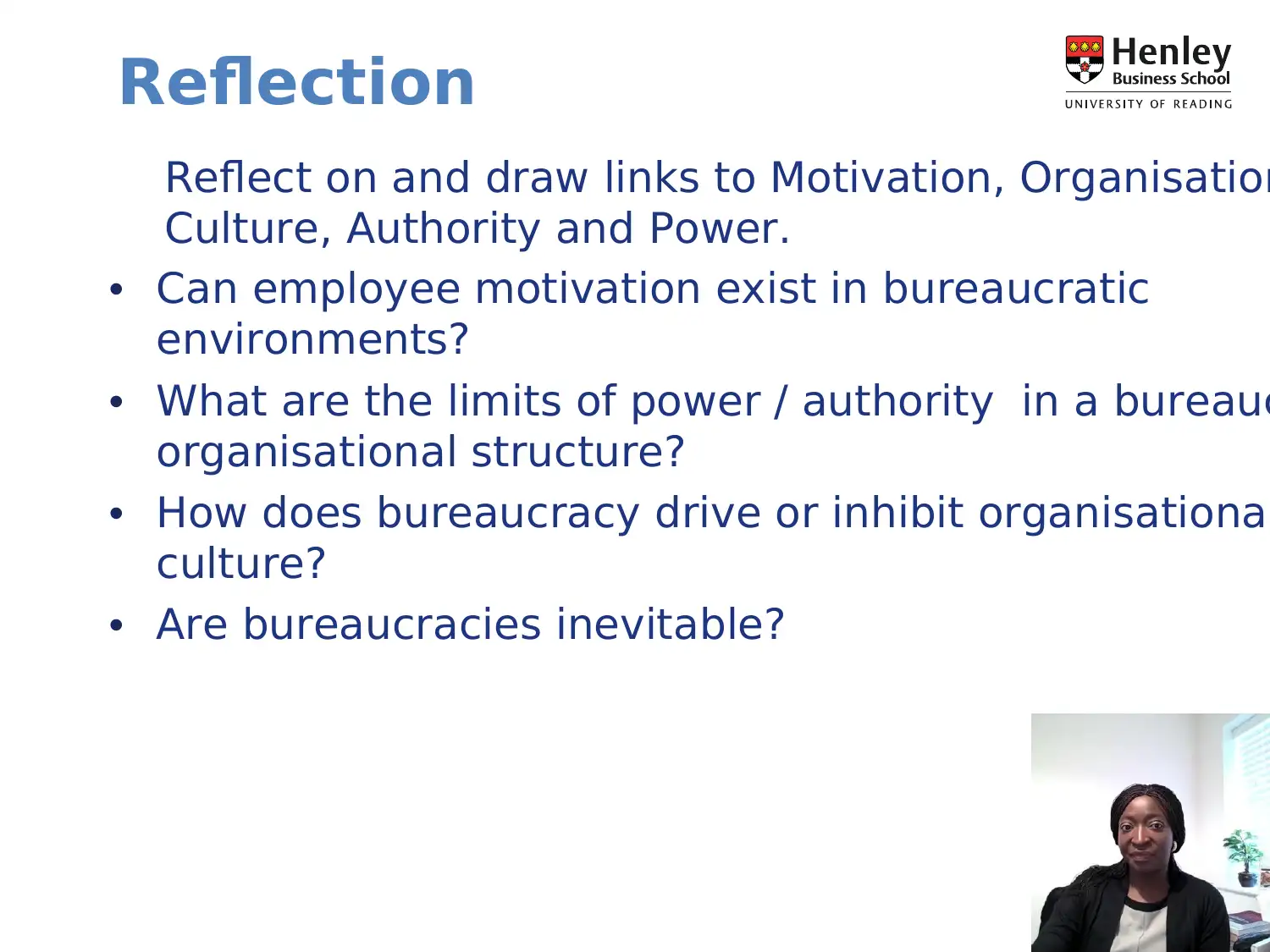




![[object Object]](/_next/static/media/star-bottom.7253800d.svg)